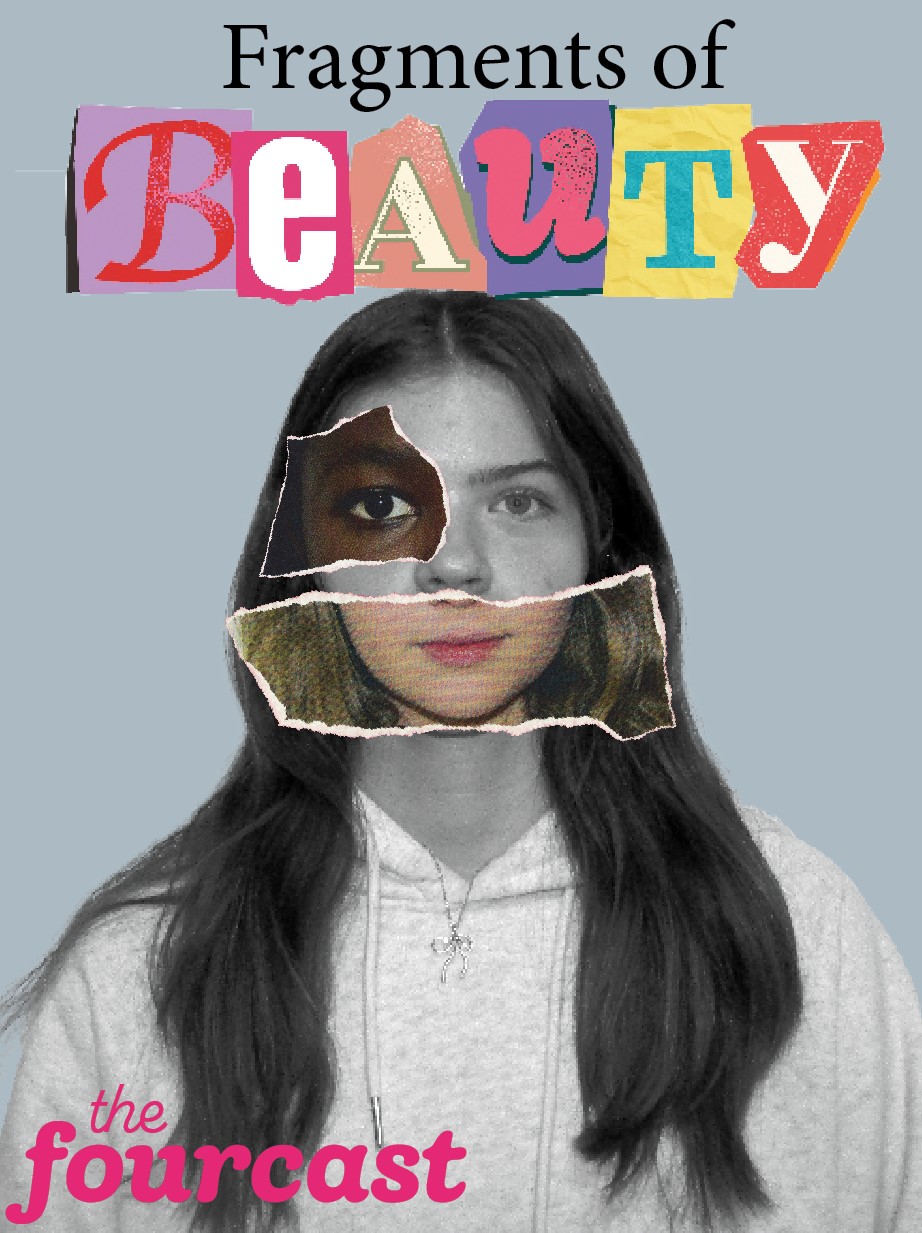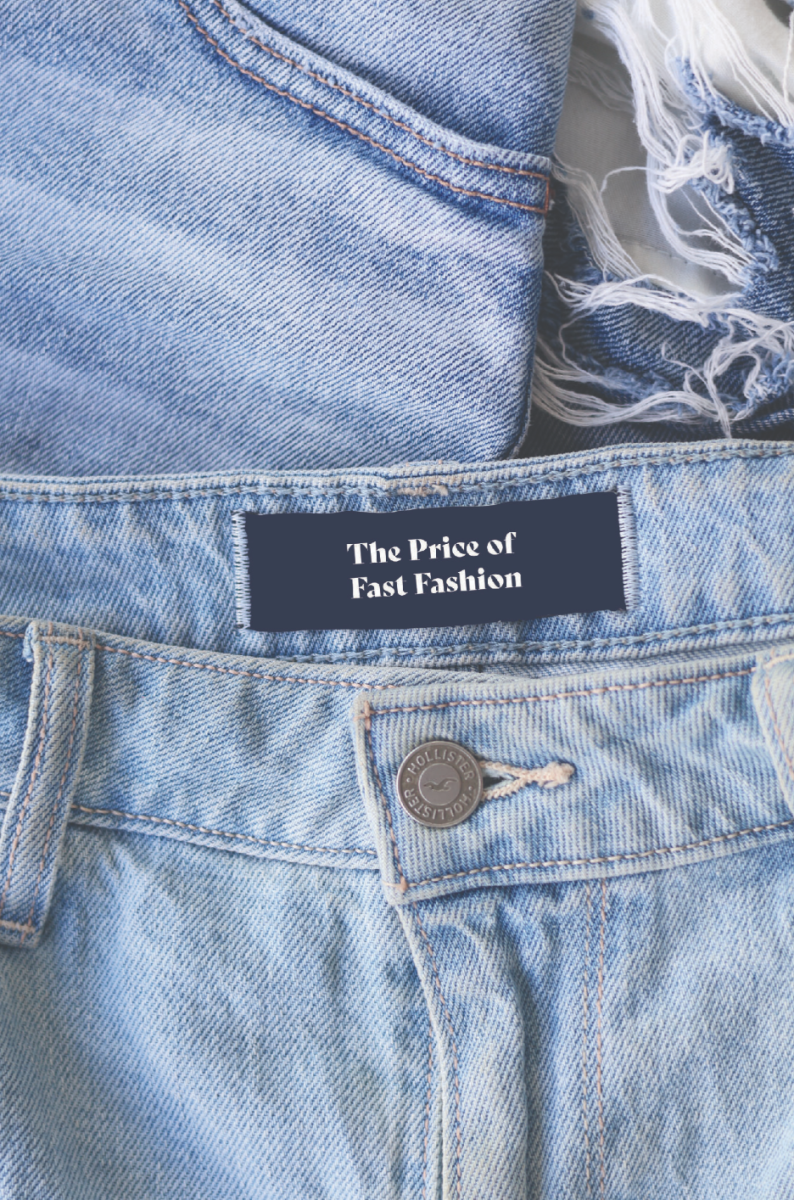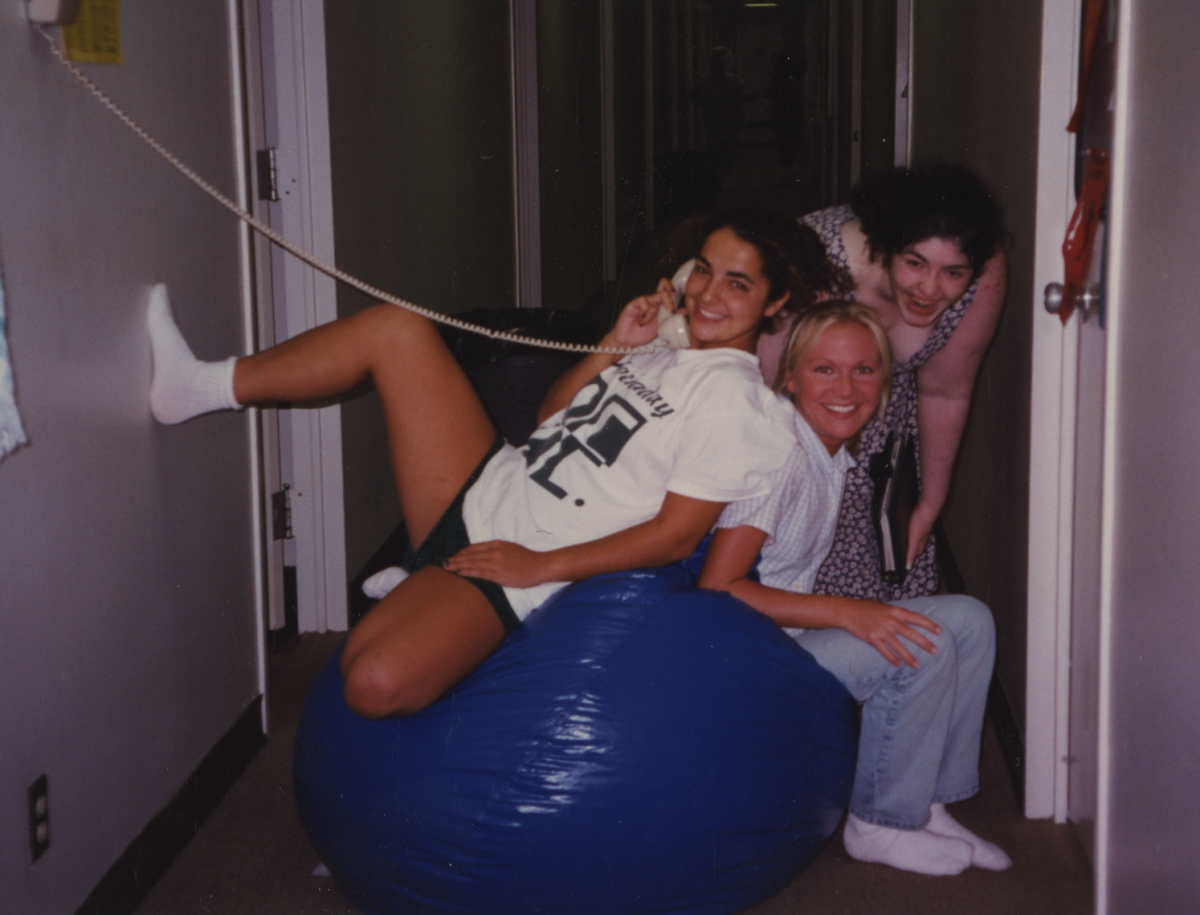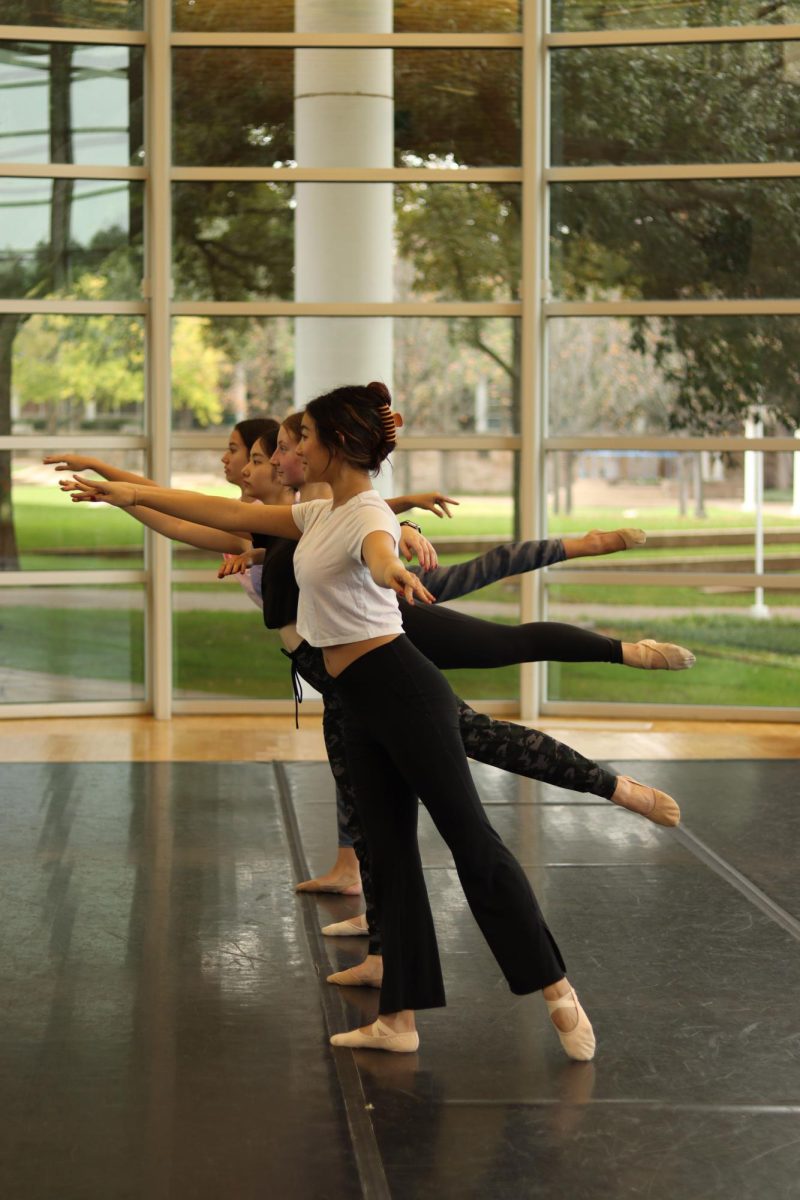Fragments of beauty

Form III students Sofia de la Pena and Vanessa Ma reflect on the beauty standards social media portrays and how the standard affects their lives.
Both Pena and Ma got social media platforms like TikTok, Instagram and Snapchat around fifth grade. Pena admits she got Snapchat to fit in, as it was the main form of communication among her peers and felt excluded without it. Ma, on the other hand, got TikTok to simply watch videos, however she began making her own videos soon thereafter.
Pena believes being skinny and having injection-filled-lips, button noses and blonde hair are features that social media highlights the most. With curly brown hair, Pena believes she doesn’t fit the standard of beauty society has set.
“Most feel like hair doesn’t matter much, but I feel like blonde is what many people want to be,” Pena said.
Social media has made Pena disappointed, especially as she sees the comments on viral videos on TikTok of conventionally attractive girls. She sees comments such as: I would kill to look like this and why can’t I look like this. These comments cause her to wonder: “Why are we all trying to be this one person?”
In addition to social media, Pena also notes the importance of people at parties who often try to fit a certain standard of beauty.
“I have definitely felt insecure at party settings,” Pena said. “Especially when people don’t talk to me, and I start to think it’s because I’m not pretty enough and I don’t look a certain way.”
At parties, Pena is sometimes the only person with curly hair, especially because many people choose to straighten their hair, causing her to feel out of place and awkward.
“Not everyone has to find you pretty and that’s ok,” Pena said. “If you just try to make sure that
everyone likes the way you look and the way you style yourself, you’re never going to be happy and feel fulfilled.”
Similarly to Pena’s views on blonde hair, Ma believes bright blue eyes are also a standard that social media sites such as TikTok project.
This standard has influenced Ma to wear blue colored contacts.
In addition to American beauty standards, Ma also is chained to expectations from Chinese beauty standards.
“In China, people think girls are only the prettiest when they have a very small face and I wasn’t born with a small bone structure in my face,” Ma said.
Because Ma believes she doesn’t fit a certain standard, she began using face altering apps to reshape her face. This has caused Ma to feel like she can’t be herself, as she feels the need to edit her waist and legs when taking full body pictures.
“I only feel prettiest if I don’t look like myself,” Ma said.
Both Pena and Ma offer advice to their younger selves and others:
“When you’re trying to post a picture or your friends are trying to post a picture, your vision lands on yourself first. You’re like ‘Oh my gosh don’t post that picture I’m so ugly,’ but sometimes it’s just you who thinks you look bad,” Ma said.
St. Mark’s senior Noah Cathey and junior Neil Yepuri share their views on women’s beauty standards and similar standards that they face as men.
Cathey is a firm believer that standards of beauty manifest in how a person looks. So, if a guy is tall and agile then he is most likely athletic, a characteristic he thinks girls find attractive.
“I think there is an intrinsic connection in what a guy looks like and the qualities he has,” Cathey said.
Cathey believes that the bar for men and women are both unattainable, however, he thinks that there is more pressure on women.
“The ideal body shape for men has changed less than that of women,” Cathey said. “In more simple language, the things that girls find attractive manifest themselves in physical characteristics.”
Cathey believes that girls pursue certain traits, and because attractive traits can be tied to physical attributes, they might go after guys that look a certain way.
“What girls look for in a guy is more related to how he takes care of himself and the personal qualities he has,” Yepuri said.
Cathey agrees with Yepuri’s belief.
“The standards for men are often more attainable as they are usually things that they can easily change or do for themselves,” Cathey said. “For example, if girls find athleticism attractive, they might tend to go for more tall and agile guys.”
Cathey attended co-ed schools before enrolling at St. Mark’s for ninth grade. He believes his
interactions with girls outside of his usual all-boy environment and how he was raised has provided him with a broader perspective. Cathey believes most St. Mark’s students realize there is a broad spectrum of attractive qualities, meaning he could find someone attractive while his friend would not.
Yepuri, who has attended St. Mark’s for 11 years, agrees.
Cathey and Yepuri both said they wished girls knew that men’s preferences in a woman’s looks doesn’t define their attractiveness in general. There is a myriad of reasons guys think a certain girl is attractive, many of them related to personality qualities and not looks.
Ashley Ferguson, Upper School Counselor, helps students and advocates for them socially and academically.
Ferguson’s work experience has included domestic violence, juvenile probation services, medical social work and trauma counseling.
In the domestic violence field, Ferguson has worked with many students and realized many school counselors were not necessarily informed on how to support students who are struggling.
“I got into school counseling because I wanted to change the stigma and support and provide education on counseling” Ferguson said.
Ferguson admits that conversations about appearances and self-image are a large part of discussions that she has.
“I would say that it is a part of a lot of conversations in my office, where my door is open or closed,” Ferguson said. “Some conversations might even be what you are wearing to a Taylor Swift or Beyonce concert. A lot of conversations I have, and other people have with their friends, regularly are rooted in self-perception and ‘what I look like versus how other people view me.””
Ferguson said that comments and conversations about people’s appearances are woven into the daily threads of conversation. However, if a student came to Ferguson seeking plastic surgery, she would advocate for them in and outside of the classroom and ensure that the student feels supported academically and socially.
“I would check in on them to make sure they feel supported by their teachers and make sure they don’t come back too prematurely and that they are taking care of themselves,” Ferguson said.“I can also send emails to teachers saying that students are going to be out, and I do not need to explain the reason because I believe that it is your story, and you should tell it.”
A current Daisy talks about her desire for plastic surgery and how modern-day beauty standards affect her self-image.
Q: What plastic surgery would you like to have if the cost is not in the equation?
A: If money was not in the equation, I would want lip and face filler, Botox, forehead reduction surgery and a nose job.
Q: How young were you when you realized you wanted these procedures and what made you want it?
A: Since I was younger, I have been bullied for my forehead and nose size, and that is when I realized I wanted these procedures. But I don’t think I would’ve been insecure about those features if nobody had ever pointed them out to me. In middle school, people would make comments like “five head” and “big nostrils” to me.
Q: Do your parents believe you should undergo these operations?
A: My parents don’t think I need them, but at the same time, I want them. Also, beauty standards right now make me want these procedures even more.
Q: Has wanting one of these procedures affected your mental health?
A: Yeah, for sure, it affects my self-image and self-confidence. When I put on makeup, I feel a lot better about my appearance momentarily, but at the same time, I also dislike the way I look and pick myself apart for it.
Q: Have you ever spoken to a medical professional about this endeavor?
A: I’ve spoken to my therapist but not a plastic surgeon, but I for sure would. I would be kind of scared to go through the procedure, but it also depends on what I’m getting done and how invasive the surgery is. For example, in forehead reduction surgery, the doctors literally slice open your head and you are awake the entire time. And, for a nose job, the healing process is painful and not very fun to endure.
Joseph Leach is American Board-certified in both Otolaryngology and Facial Plastic Surgery. Leach received his M.D. from the University of Texas Med School at Houston and his specialty in Otolaryngology-Head and Neck Surgery at the University of Texas Southwestern Medical School at Dallas.
Q: What role does social media play in adolescents wanting plastic surgery?
A: I think the media shapes our understanding of what looks good and sets the standard of what features a nice-looking face would have. Although there have always been beauty standards, they are now further reinforced by social media.
Q: Among adolescents, what is the most popular type of plastic surgery?
It would definitely be rhinoplasty. In addition, split earlobes are the second most common cosmetic issue I see in young people. I see problems with ear piercings gone bad or infections and scars that form around the ear from that. As young people, you’re not burdened with things that come later in life like bags, wrinkles, saggy skin on the face so it’s not an issue.
Q: How does having plastic surgery affect someone’s mental health?
A: 95% of people don’t need plastic surgery and the people that don’t need it shouldn’t have it. We do see situations where someone looks totally fine and yet they have an abnormal fixation about a certain body part. There are situations where there is a relatively significant malformation and it’s causing social issues like withdrawal, depression or anxiety.
Q: Can you speak about your firsthand experiences with adolescents coming to you asking for plastic surgery?
Girls tend to be more open about it and they’ll have stronger opinions about what they want to look like than boys. They’ll bring pictures of celebrities and say I like this about her nose, and I want these features. I try to explain the procedure as well as I can so that they won’t be scared, and so they’ll have the best idea of what their recovery will be like. A lot of younger people want their parents to film the removal of the plastic pieces out of their nose and they will share it with their friends on social media, which is odd for me, but it’s entertaining for them.
Q: What do you believe is the youngest age for adolescents to have cosmetic surgery?
A: In my field it’s important for a girl to be at least 14 years old and for boys to be 15. This is because the nose must reach normal adult size before having surgery on it. By cutting into the cartilage of a 10 or 11-year-old, I could damage a growth center, the place where cells are located that are responsible for allowing the nose to get bigger. Damaging the growth center at an early age could cause major deformities or alterations in the growth of the nose.
Q: What are some misconceptions about plastic surgery?
A: One misconception about plastic surgery is that it will solve all of life’s problems. A more realistic goal would be to restore harmony to your face or let a particular feature be in better harmony with the rest of the face. Another misconception is that cosmetic surgery is something you can have over and over. Truthfully, every time you have cosmetic surgery on any body part it becomes more and more difficult to have it done again. It’s always best to do the right operation the first time and then never have that part of the body operated on if you can avoid it.








